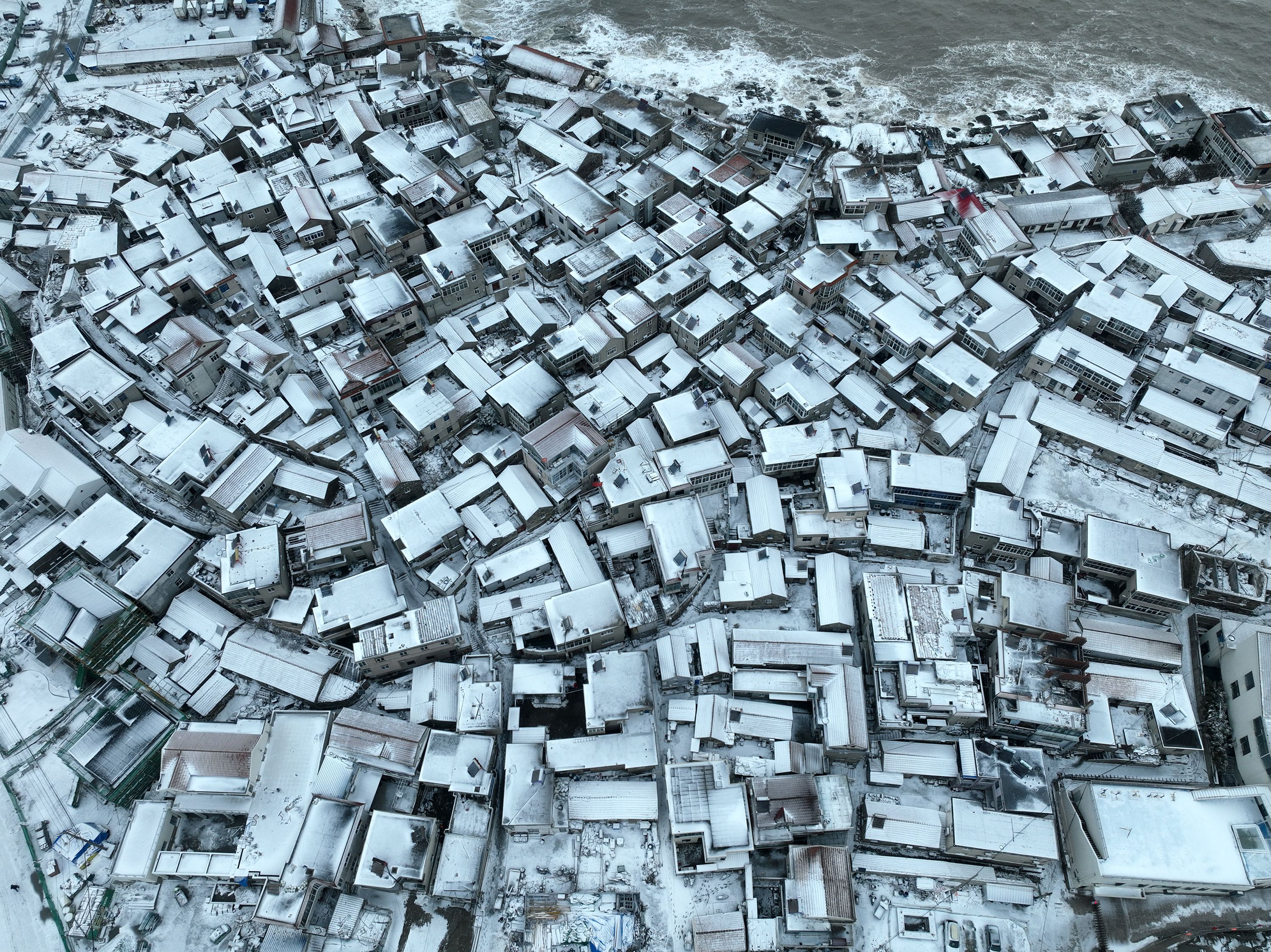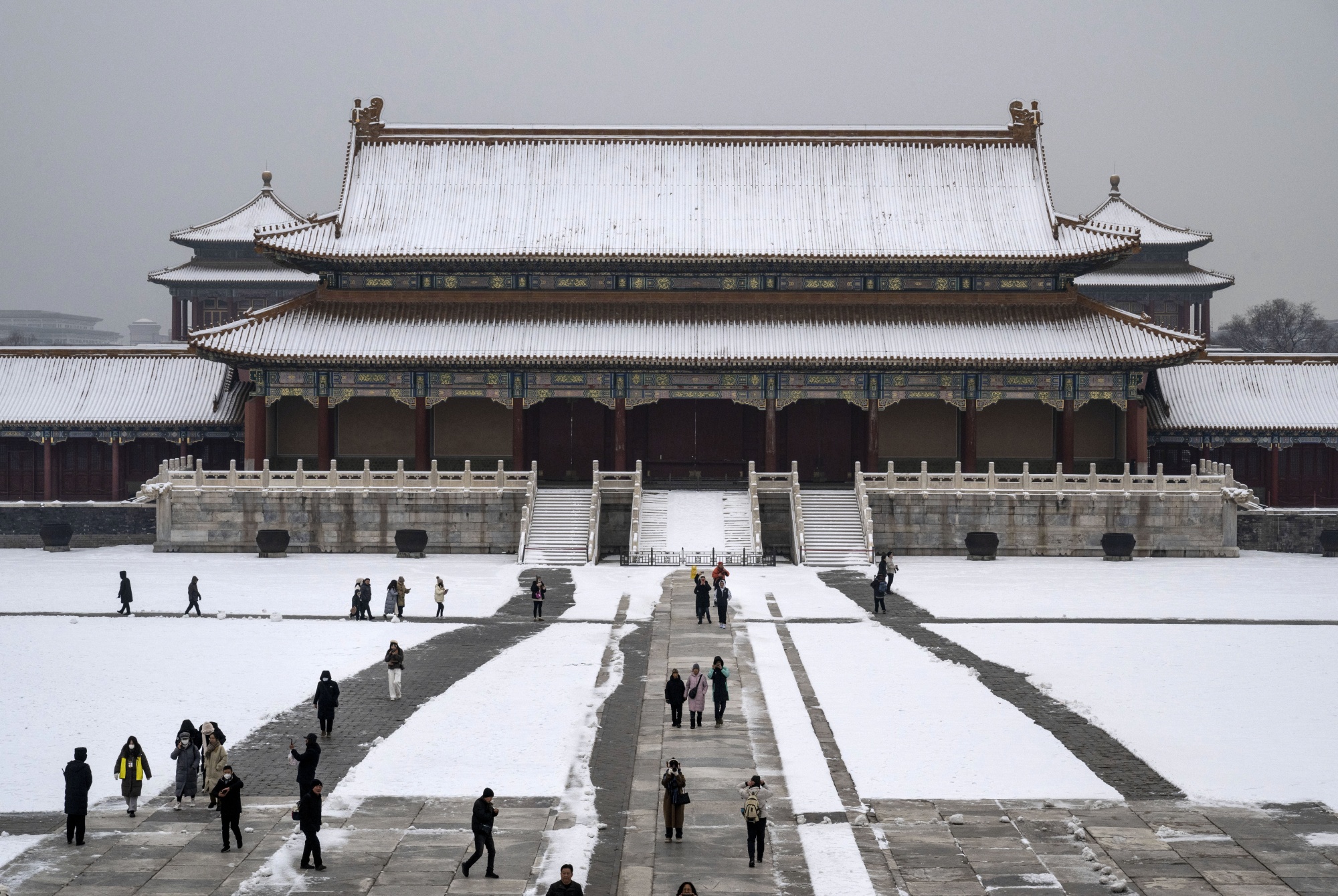Snowstorm Disrupts Travel In China Ahead Of Lunar New Year
In a disruptive turn of events, snowstorm disrupts travel in China. This comes at a crucial time as millions of individuals commence their journeys for the Chinese New Year celebrations.
Jane RestureFeb 06, 2024856 Shares12771 Views

In a disruptive turn of events, snowstorm disrupts travelin China. This comes at a crucial time as millions of individuals commence their journeys for the Chinese New Year celebrations.
The China Meteorological Administration (CMA) has raised the alarm by issuing an orange alert for blizzards, impacting seven provinces in the central and eastern regions. The weekend weather conditions have hit hardest in parts of Hubei, Hunan, Chongqing, and Anhui, posing significant challenges for travelers during this festive season.
Severe Weather Threatens Travel During Lunar New Year
Snow and freezing rain wreaked havoc on travel plans across China on Monday, leading to hundreds of rail and flight cancellations just days before the Lunar New Year holiday. Millions of people were in transit, marking the annual migration for the Spring Festival, a tradition known for being the world's largest annual migration.
Despite the challenges posed by the pandemic in recent years, with concerns over lockdowns and quarantine measures, this year was anticipated to witness a return to normal holiday travel levels. China's aviation regulator had even scheduled an additional 2,500 international flights, and transportation officials expected a staggering 480 million rail trips during the 40-day travel surge, reflecting a nearly 40 percent increase from the previous year.
However, an unexpected turn of events unfolded as severe weather conditions, commencing last week and expected to persist for several more days, disrupted the travel landscape. The National Meteorological Center issued warnings for snowstorms and blizzards in central and eastern provinces and cities, including Chongqing, Guizhou, Hubei, and Anhui.
Forecasters caution that the extreme winter weather may cause widespread disruption, with state broadcaster CCTV predicting the "most complex weather" since 2008 when heavy snow affected over 67 million people. While Xu Jun, chief forecaster from the Central Meteorological Observatory, reassured that the forecasted snowfall won't be as severe as that experienced 16 years ago, she highlighted the rarity and intensity of the weather event.
At least 10 provinces, including Hebei, Henan, Shandong, Liaoning, and Hubei, are bracing for blizzards until the beginning of next week, just days before the Lunar New Year on Saturday. Weather expert Wang Lijuan from the China Meteorological Administration noted the risks to safe travel and the inconvenience caused to transportation during the peak period of Spring Festival travel.
To address the challenges, transport officials have mobilized thousands of employees to clear snow and defrost railways and roads. Police officers are aiding stranded motorists on frozen roads, while nearly 100 highway toll stations in Anhui have blocked vehicles due to snow and freezing conditions.
The national rail operator, China State Railway Group, has taken measures to ensure safety, either putting trains out of service or restricting speeds in affected regions. The aviation sector has also been impacted, with hundreds of flights disrupted in recent days.
Wuhan Tianhe Airport saw two runways closed on Sunday, resulting in the cancellation of over two hundred flights. Airports in Anhui and Hubei provinces faced mass cancellations or delays, further compounding the travel woes for those hoping to celebrate the Lunar New Year with their families.
Final Thoughts
Snowstorms and extreme weather pose a threat to transportation for millions traveling across China during the Lunar New Year, or "chun yun." The China Meteorological Administration warned on Tuesday that complex winter conditions, including rain and snow, could significantly impact travel during the holiday period from January 26 to March 5.
Northern China, including Jilin, Liaoning, and Xinjiang Uygur autonomous region, experienced a blizzard on Tuesday. Meanwhile, Zhejiang province in the east and Guangdong province in the south were blanketed by heavy fog.
Latest Articles
Popular Articles
